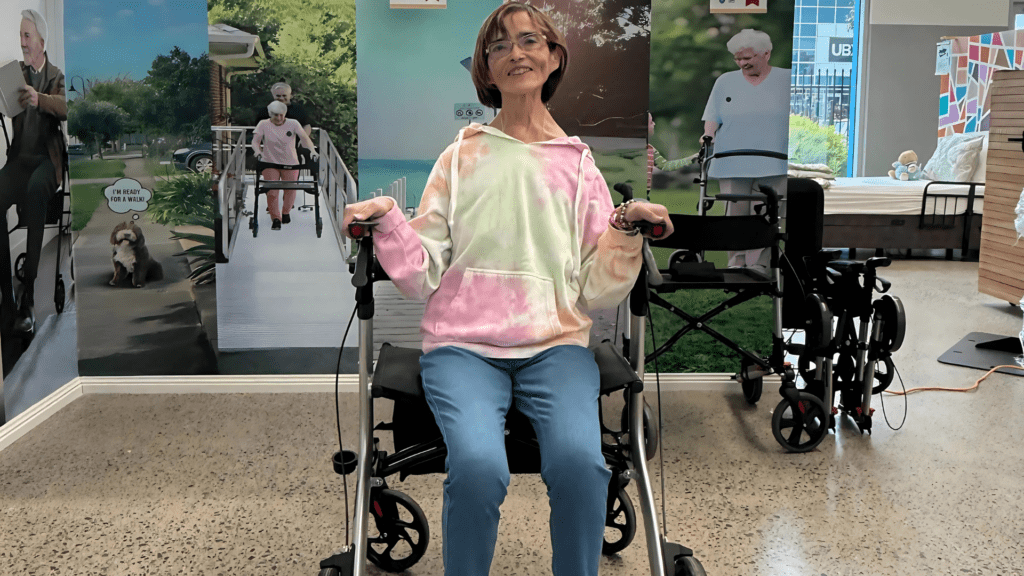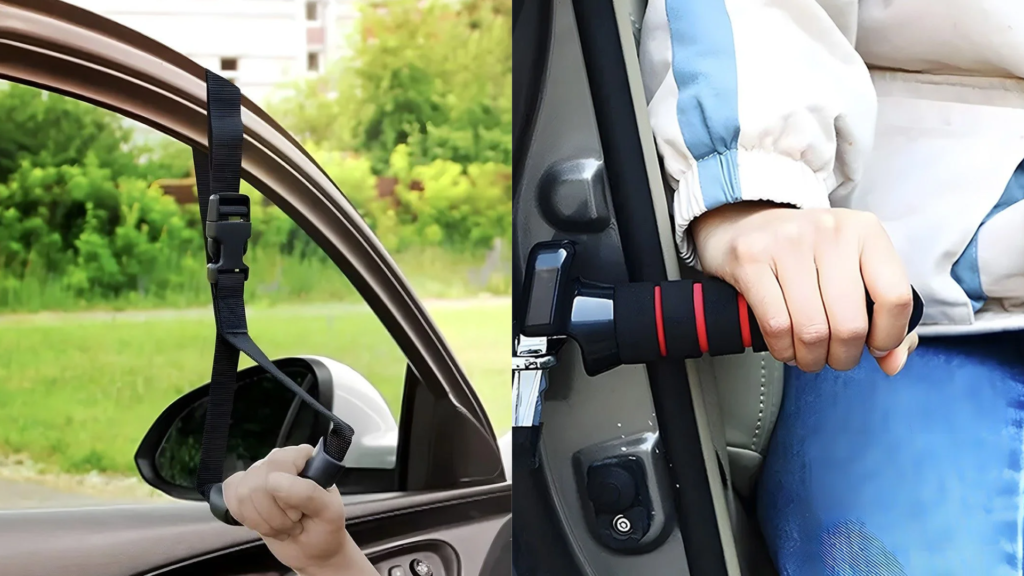Ensuring Safe and Comfortable Showering
For elderly users, NDIS participants, and carers, a safe shower environment is crucial. Shower chairs provide essential support, allowing users to bathe independently while reducing the risk of slips or falls. Choosing between a wheeled or stationary model depends on mobility needs, bathroom layout, and safety requirements.
At Care With Us, we offer a wide range of shower chairs, including 360° rotation and foldable models suitable for aged care and NDIS-funded setups in Victoria.
Differences Between Wheeled and Stationary Shower Chairs
Mobility and Maneuverability
Wheeled shower chairs are designed for movement, making it easier for carers to reposition users or navigate tight bathroom spaces. They are particularly helpful in multi-user settings or for individuals who need to transfer from wheelchair to shower seat.
Stationary chairs, on the other hand, remain fixed, providing a stable and secure seating option. They are ideal for small bathrooms or users who require maximum balance support without any movement risk.
Stability and Safety Considerations
Stationary shower chairs typically have rubber tips or suction feet, which prevent slipping during use. Wheeled chairs include locking mechanisms to secure the chair during showering. While wheeled chairs offer flexibility, stationary chairs excel in preventing accidents due to unexpected movement.
Key Features to Consider
Adjustable Height and Armrests
Adjustable legs and armrests ensure the shower chair suits the user’s height and mobility level, supporting safe transfers and reducing strain on carers. This is especially important for elderly users or those with limited upper-body strength.
Foldable Options for Storage
Foldable shower chairs are ideal for bathrooms with limited space. They can be stored safely when not in use, offering convenience without compromising on stability or comfort.
SWEP and NDIS Funding Availability
Many shower chairs are eligible for SWEP or NDIS funding in Victoria, which can cover part or all of the purchase cost. Allied health professionals and occupational therapists can provide recommendations and assist with funding applications to ensure the right chair meets both clinical and mobility needs.
Choosing the Right Shower Chair for Elderly or Disabled Users
To select the best chair, consider:
- User mobility: Can they move independently, or is carer assistance required?
- Bathroom layout: Space limitations may dictate whether a wheeled or stationary chair is more suitable.
- Weight capacity: Ensure the chair can safely support the user.
- Adjustability: Height, armrest, and footrest options enhance safety and comfort.
- Funding eligibility: Confirm SWEP or NDIS funding options in Victoria.
Proper selection improves safety, comfort, and independence during daily showering routines.
Maintenance and Cleaning Tips
- Clean the chair after each use with mild soap and water to prevent mold and bacteria.
- Check wheels, locks, and rubber tips regularly for wear and tear.
- Ensure folding mechanisms operate smoothly for foldable models.
- Avoid using harsh chemicals that may damage plastic or metal components.
Regular maintenance prolongs chair life and ensures ongoing safety for users.
Conclusion
Choosing between a wheeled or stationary shower chair depends on user mobility, bathroom space, and safety needs. Wheeled chairs offer flexibility and ease of movement, while stationary chairs provide maximum stability. Adjustable features, foldable designs, and funding through SWEP or NDIS can make the right shower chair accessible and practical for elderly and disabled users.
Browse our shower chair collection or contact Care With Us for advice, home trials, and funding guidance.
FAQs
- Which shower chair is better for elderly users?
Stationary chairs are often safer for elderly users needing maximum stability, while wheeled chairs suit those requiring mobility support. - Are there foldable shower chairs available?
Yes, foldable models like this one save space and are easy to store. - Can I get funding for a shower chair through NDIS or SWEP?
Many chairs are eligible for SWEP or NDIS funding in Victoria. Allied health assessments can support the application. - How do I maintain a shower chair?
Regular cleaning, checking wheels or rubber tips, and inspecting folding mechanisms ensures safety and longevity. - Can wheeled chairs be used safely in small bathrooms?
Yes, provided they have secure locking mechanisms and the bathroom allows sufficient maneuvering space.


